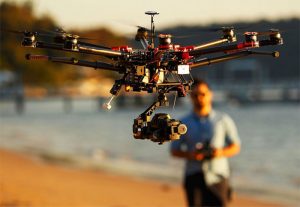Columbia, South Carolina (Associated Press)-This week, federal officials oversaw testing in South Carolina’s cell phone jamming technology prison, hoping that the technology will help counter the threat posed. Officials told the Associated Press that they used smuggling Cell phone for prisoners.
According to officials from the Department of Justice, the test was conducted for five days in the housing of the Broad River Correctional Facility, which is the highest security prison in Columbia, South Carolina. Deputy Attorney General Beth Williams told The Associated Press that this is the first time that federal officials have cooperated with state prison officials to conduct such tests.
The official has not yet released the test results, which will be included in a future report prepared by the National Telecommunications and Information Administration.
The test marked progress in efforts to stop the use of prohibited mobile phones at the national level, and officials said it has long been a major threat to the security of their institutions. Last year, this micro-portable jammer technology was tested in federal prisons-officials said they were able to cut off phone signals in prison cells when the equipment was operating normally 6 meters away-but a decades-old version The law states that local agencies have no right to interfere with public broadcasting.
The Commissioner of the South Carolina Department of Corrections Bryan Stirling has been talking about the dangers of thousands of devices being brought into the institution for years, and he told the Associated Press that he was recently appointed as the U.S. Special Representative and therefore Give him the federal status necessary to perform the task. Interference test.

Sterling told the Associated Press on Friday: “I am very encouraged by what we saw in the Broad River this week.” He added that he is optimistic about the federal law introduced last month, which will bring prisons. The officer was given a description of the ability to block the signal.
In 2008, South Carolina officials received an exemption from the Federal Communications Commission to conduct interference tests in another highest-security prison to protest the media and other officials, but not in the dormitory.
Stirling and other state wardens took other measures-cell phone detection, such as perimeter management, drone surveillance and scanners-but advocated the use of jamming technology to stop everything representing the best defense.
In 2017, Sterling testified at an FCC hearing in Washington with former South Carolina correctional officer Robert Johnson (Robert Johnson). Robert Johnson was killed illegally in 2010 when a prisoner used his cell phone to orchestrate a heavy blow.
In the same year, a prisoner escaped from a highest security prison in South Carolina, partly because of smuggling a cell phone. In 2018, seven inmates at the highest security prison in South Carolina were killed in what officials called gangs fighting for territory and smuggling, including mobile phones.
The US Federal Communications Commission (FCC) expressed its willingness to work on this issue, holding on-site hearings in South Carolina, and meetings with members of Congress, prison officials, and wireless industry stakeholders.
Mr. Williams said on Friday that officials are ensuring that prisons have technological options to help them deal with contraband.
Williams told the Associated Press: “It is very difficult to ensure that no contraband enters.” “We are doing our best, but it is really difficult to stop everything.”